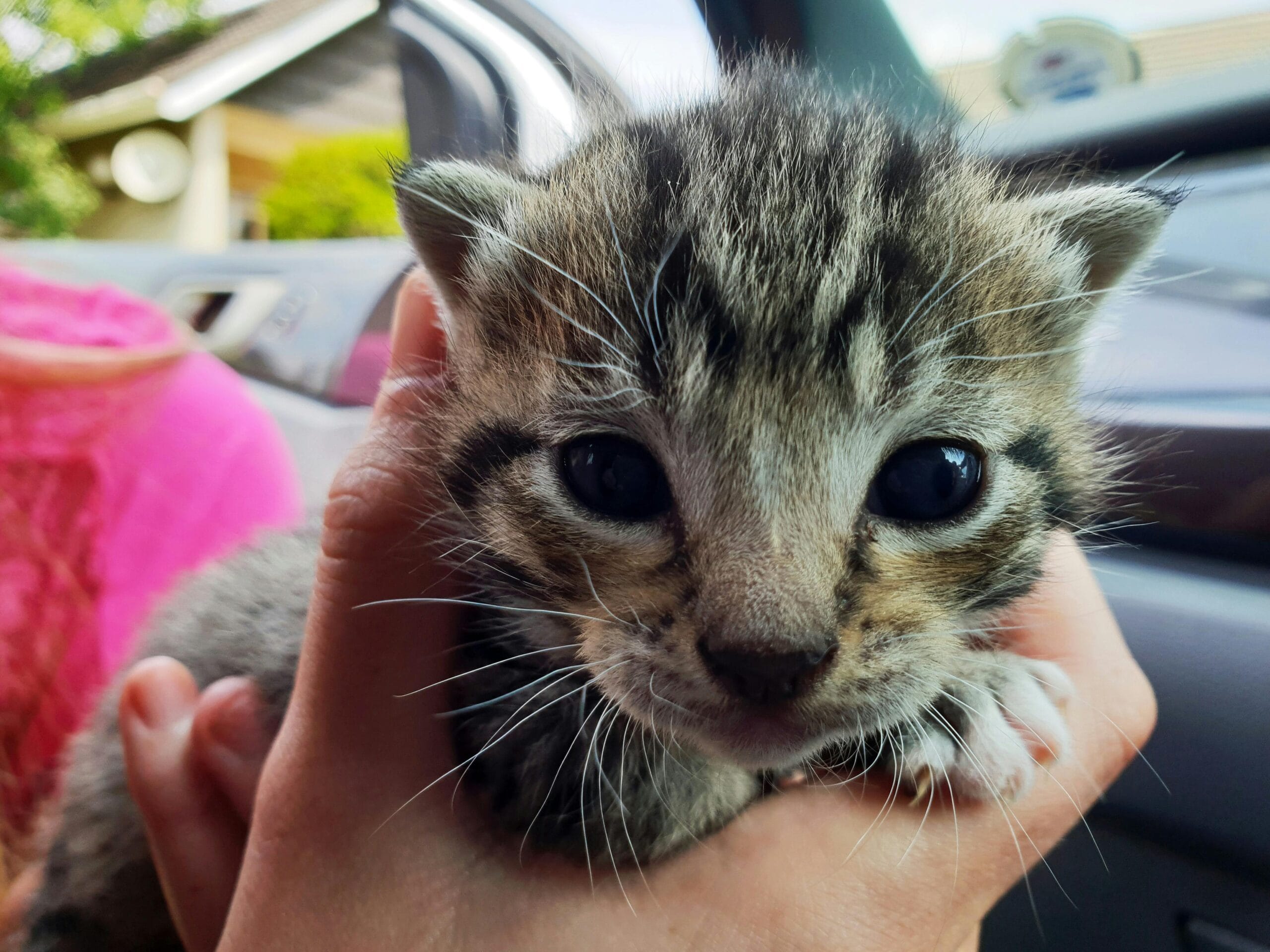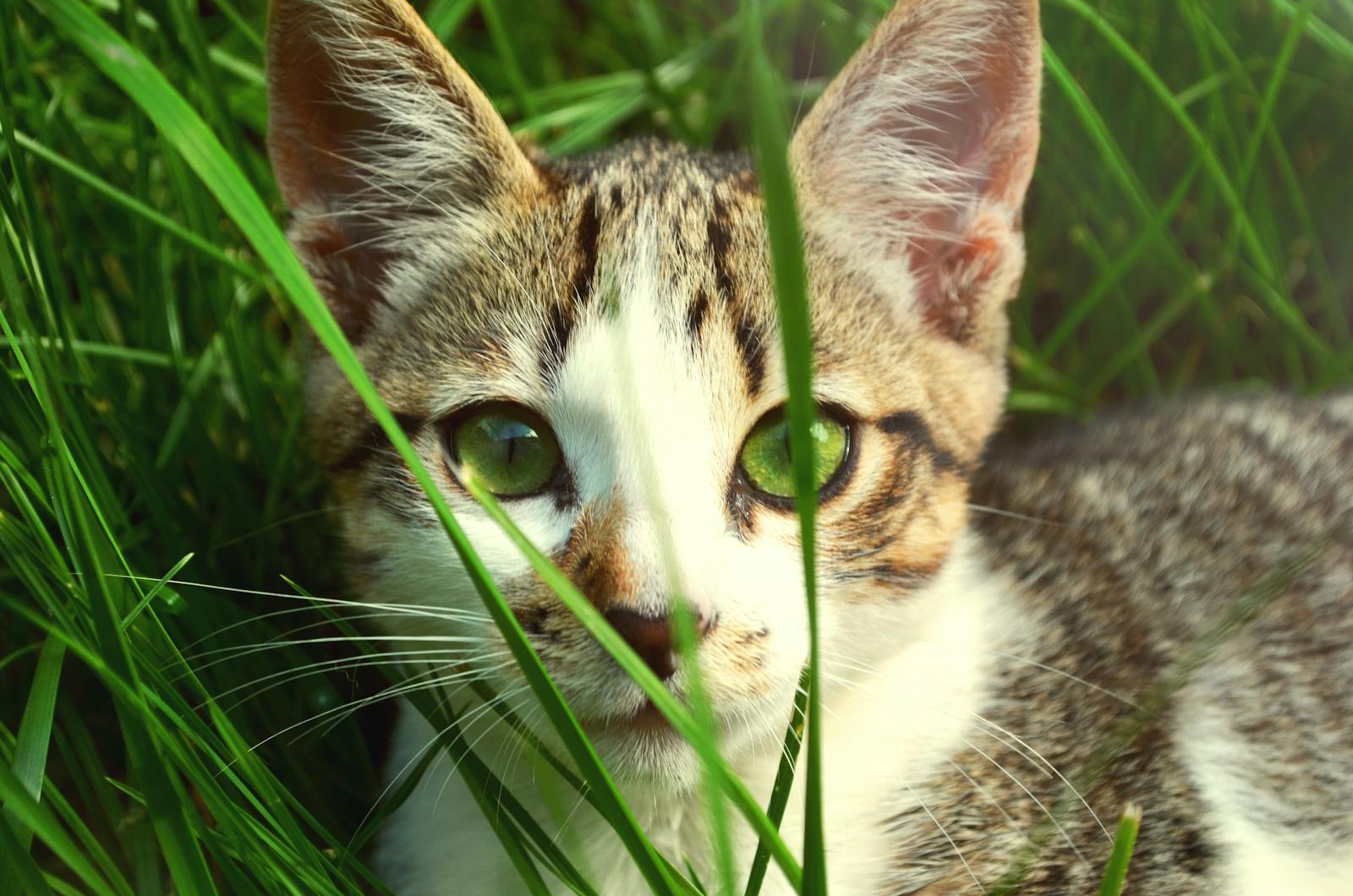Can Kittens Get Parvo From Dogs? Find out if Canine Parvovirus affects kittens. Learn about Kittens and Parvovirus risks & prevention in this essential guide. Protect your feline friend!
Can Kittens Get Parvo From Dogs? Understanding the Risks
The short answer is no, kittens cannot get parvovirus from dogs. While both canine parvovirus (CPV) and feline panleukopenia virus (FPV), often called feline parvovirus, are deadly viral infections, they are different viruses that affect different species. This article will delve deeper into the specifics of Canine Parvovirus in Kittens, the differences between the two viruses, and what risks your kitten actually faces. Understanding these distinctions is crucial for responsible pet ownership and ensuring the health of your feline friend. This is especially important if you have both a dog and a kitten, as many multi-pet households wonder about the potential cross-species transmission of illnesses.
Canine Parvovirus and Feline Panleukopenia: Distinct Viruses
Can Kittens Get Parvo From Dogs? The question often arises due to the similar-sounding names and the severity of both illnesses. However, CPV and FPV are distinct viruses with different genetic structures and target cells. Canine parvovirus primarily affects dogs, targeting rapidly dividing cells in the bone marrow, intestinal lining, and lymphatic system. FPV, on the other hand, while also affecting rapidly dividing cells, is specific to cats and is highly contagious. While both viruses cause severe gastrointestinal symptoms, such as vomiting and diarrhea, the underlying mechanisms are different. A dog with CPV cannot transmit the virus to a kitten, and vice versa.
It’s important to note that while a kitten can’t contract CPV from a dog, your kitten is still susceptible to its own version of parvovirus – FPV. FPV is highly contagious and easily spread through direct contact with infected feces, contaminated surfaces, or even indirectly through contaminated items like clothing or shoes. This is why responsible hygiene practices are vital when caring for any feline, especially young kittens. Learning how to kitten-proof your home, as discussed in this helpful guide, can significantly minimize the risk of exposure to various pathogens.
Understanding Feline Panleukopenia Virus (FPV)
Kittens and Parvovirus – specifically FPV – are a serious concern. This highly contagious virus can be devastating for kittens, particularly those who are unvaccinated or very young. FPV attacks rapidly dividing cells, impacting the bone marrow, intestinal lining, and lymphatic system, leading to severe symptoms such as:
- Lethargy
- Loss of appetite
- Fever
- Vomiting
- Severe diarrhea (often bloody)
- Dehydration
- Weakness
- Weight loss
In severe cases, FPV can be fatal, especially in young, unvaccinated kittens. The incubation period can range from 2 to 10 days, meaning a kitten can be infected and show no symptoms before suddenly becoming critically ill. Early detection and veterinary care are crucial for increasing the chances of survival.
One of the most important aspects of kitten care is ensuring proper hydration. Understanding a kitten’s water intake can be crucial in noticing early signs of illness like FPV. If your kitten displays any of the symptoms listed above, immediate veterinary attention is necessary.
Preventing Feline Panleukopenia
The best way to protect your kitten from FPV is through vaccination. Kittens should receive their first FPV vaccination around 6-8 weeks old, followed by booster shots according to your veterinarian’s recommendations. This vaccination is typically part of a broader feline core vaccine series. As responsible pet owners, we need to take these preventative measures seriously. The American Veterinary Medical Association (AVMA), a well-respected source of veterinary information, provides excellent resources on vaccinations and feline health: American Veterinary Medical Association
Differentiating Canine Parvovirus Symptoms from Feline Panleukopenia
While both viruses cause vomiting and diarrhea, there are some key differences in their presentation: Canine parvovirus is frequently accompanied by severe lethargy, sometimes including a dramatic drop in white blood cell counts, while FPV can sometimes manifest with more neurological signs in addition to gastrointestinal distress. Accurate diagnosis requires veterinary examination and testing. As the symptoms can overlap, it’s critical not to attempt self-diagnosis. Contact your vet if you have any concerns about your pet’s health.
Handling a sick kitten requires special care and understanding. Understanding when and how to handle newborn kittens applies to sick kittens as well; minimize stress and prioritize hygienic practices to prevent the spread of illness.
The Importance of Hygiene in Multi-Pet Households
Even though kittens cannot contract CPV from dogs, maintaining impeccable hygiene is crucial in a multi-pet household. Regular cleaning of litter boxes, food and water bowls, and other surfaces helps to minimize the risk of infection from any pathogens, not just those specific to cats. Careful handwashing after handling either pet is also important in preventing the spread of any germs.
Addressing Behavioral Concerns in Kittens
While focusing on the health aspects, it’s important to remember that kittenhood is a time of intense growth and development. Behavioral issues, such as biting, can arise during this period. Understanding and addressing these issues is just as crucial as focusing on their health. This guide provides insight into how to deal with biting kittens. This is important for maintaining a healthy relationship with your new family member.
When Do Kittens Become Cats? The Transition Period
As kittens grow into adult cats, their health needs and behavioral challenges evolve. Understanding this transition period is vital for continued responsible pet ownership. This article helps to understand the growth stages of kittens and what to expect.
Conclusion: Preventing Feline Parvovirus is Key
In conclusion, while Can Kittens Get Parvo From Dogs is a valid question, the answer is reassuringly no. Canine and feline parvoviruses are distinct. However, the risk of Feline Panleukopenia Virus remains a significant threat to kittens. Prioritizing vaccination, meticulous hygiene, and prompt veterinary care are essential steps to protect your kitten from this potentially fatal disease. Regular check-ups with your veterinarian are also highly recommended.
For more detailed information on feline parvovirus, you can consult the resources available at the Cornell University College of Veterinary Medicine: Cornell University College of Veterinary Medicine. The Centers for Disease Control and Prevention (CDC) also provides helpful information on pet health and disease prevention: Centers for Disease Control and Prevention
Share Your Experiences!
Have you had any experiences with feline parvovirus or other kitten illnesses? Share your stories and tips in the comments below to help other pet owners! Let’s create a supportive community for responsible cat care and understanding of Kittens and Parvovirus. Your input is valuable, especially regarding preventative measures and dealing with Canine Parvovirus in Kittens (although transmission isn’t possible, understanding the distinction is helpful).

Frequently Asked Questions: Can Kittens Get Parvo From Dogs?
- Can kittens get parvo from dogs?
- No, kittens cannot get canine parvovirus from dogs. While both cats and dogs can suffer from parvovirus infections, these are caused by different viruses. Canine parvovirus (CPV) affects dogs, and feline parvovirus (FPV), also known as feline panleukopenia, affects cats. They are distinct viruses.
- What is the difference between canine and feline parvovirus?
- Canine parvovirus (CPV) and feline parvovirus (FPV) are related but distinct viruses. They affect different species and cause different diseases, although symptoms can sometimes be similar. A dog with CPV cannot infect a cat, and vice versa.
- Can Canine Parvovirus in Kittens be transmitted from dogs?
- No, canine parvovirus cannot be transmitted from dogs to kittens. The viruses are species-specific. While the symptoms might overlap, the cause is entirely different.
- My kitten is sick, could it be Canine Parvovirus?
- If your kitten is sick, it’s unlikely to be canine parvovirus (CPV). It is far more probable that it has contracted feline parvovirus (FPV) or another illness. Take your kitten to the veterinarian immediately for proper diagnosis and treatment.
- What are the symptoms of Feline Parvovirus?
- Symptoms of feline parvovirus (FPV), also known as feline panleukopenia, include lethargy, loss of appetite, vomiting, diarrhea, and dehydration. It is a serious disease and requires immediate veterinary care.
- What are the symptoms of Canine Parvovirus?
- Canine parvovirus (CPV) symptoms include vomiting, bloody diarrhea, lethargy, fever, and dehydration. It’s a highly contagious and potentially fatal disease in dogs. This is not something a kitten can contract from a dog.
- How are Kittens and Parvovirus related?
- Kittens are susceptible to feline parvovirus (FPV), also known as feline panleukopenia, which is a distinct and different virus from the canine parvovirus that infects dogs. They are not interchangeable, and a dog cannot infect a cat with its version of the virus.
- My dog has parvo; should I keep it away from my kitten?
- While your dog’s parvovirus will not directly infect your kitten, maintaining strict hygiene is crucial to prevent other infections. Ensure you thoroughly disinfect areas where your dog has been to minimize the risk of other contagious diseases spreading between your pets.
- Is there a vaccine for Feline Parvovirus?
- Yes, there is a highly effective vaccine against feline panleukopenia (FPV), which should be part of a core vaccination program for all kittens.
- My kitten has symptoms similar to parvo. What should I do?
- If your kitten is exhibiting symptoms such as vomiting, diarrhea, lethargy, or loss of appetite, seek immediate veterinary attention. Accurate diagnosis and prompt treatment are vital.

Can Kittens Get Parvo From Dogs?
No, kittens cannot get canine parvovirus (CPV) from dogs. CPV is a highly contagious virus that affects dogs, and it’s species-specific. While both cats and dogs can suffer from various viral infections, the viruses themselves are different and don’t cross over between species. This means a kitten exposed to a dog with parvovirus is safe from contracting that particular illness. However, kittens are susceptible to their own versions of viral and bacterial illnesses, so maintaining good hygiene is crucial.
It’s important to remember that while your kitten won’t contract canine parvo, it can still catch other illnesses. Regular vet checkups, including vaccinations, are vital for protecting your kitten’s health. Early vaccinations are crucial for building immunity against diseases like feline panleukopenia (feline distemper), which is sometimes mistakenly compared to canine parvo due to similar symptoms, but is a totally different disease. Ensuring your kitten receives appropriate age-appropriate vaccinations is essential for its wellbeing.
Proper hygiene is key to preventing illness in kittens. Thoroughly cleaning up after your pets, washing your hands frequently, and keeping their environments clean is essential. For example, a new kitten will require a kitten-proofed home to prevent accidents and ingestion of potentially harmful substances. Learn how to kitten-proof your home to create a safe and healthy environment for your furry friend.
While a kitten might seem small and fragile, they are incredibly resilient creatures and can easily injure themselves by chewing on electrical cords or other dangerous objects. Keeping your home safe and your kitten well-supervised is an integral part of their health and development.
Another common concern for new kitten owners is handling. While it’s tempting to cuddle newborn kittens, it is generally advised to limit handling as much as possible during their first few weeks. Find out more about handling newborn kittens to ensure you do so appropriately.
Providing proper nutrition and hydration is also crucial. Ensuring your kitten has access to fresh, clean water at all times is vital for their health. Learn more about kitten hydration to ensure their water intake is sufficient.
Understanding your kitten’s development is also important. Knowing when kittens become cats helps you understand the developmental stages and adjust your care accordingly. This will include understanding changes in behavior, like playful biting. If your kitten exhibits excessive biting, learn how to get your kitten to stop biting through positive reinforcement techniques.
In conclusion, while kittens can’t contract canine parvo, they are vulnerable to other diseases. Proactive care, including vaccinations, hygiene, and a safe environment, is vital for a healthy and happy kitten.

Can Kittens Get Parvo From Dogs, Kittens and Parvovirus, Canine Parvovirus in Kittens